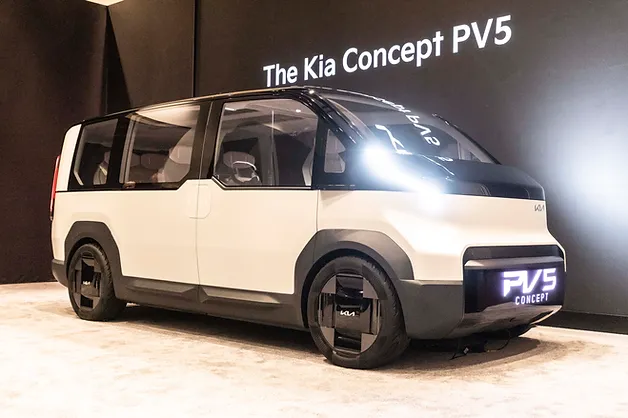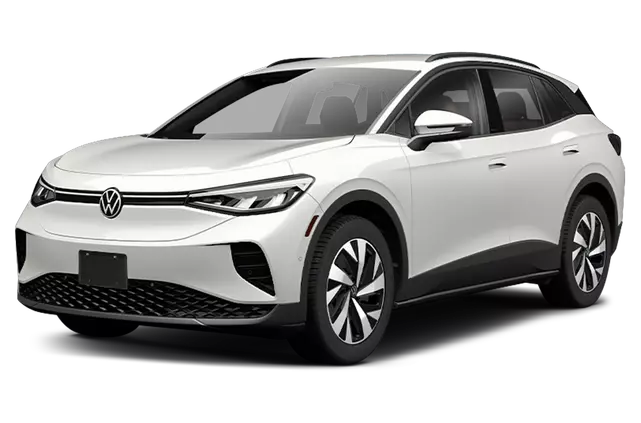Kia Motors has taken a significant step towards redefining the landscape of commercial fleets with the introduction of its groundbreaking PV5 modular electric vehicle (EV). The South Korean automaker has entered into a memorandum of understanding with Uber, marking a pivotal collaboration to transform ride-hailing services. This collaboration aims to redefine commercial fleets, fulfilling Uber’s 2040 climate pledge to go all-electric in all markets.
Image credit: static.wixstatic
The PBV Modular Electric Vehicle Platform
Kia’s modular electric vehicle platform, known as PBV (Platform Beyond Vehicle), was introduced at the Consumer Electronics Show (CES) in Las Vegas. The PBV family of EVs is built on a flexible vehicle architecture, allowing for different swappable body types.
The key feature of this platform is the ability to transform the vehicle from a minivan to a full-size van to a small truck, depending on specific needs. The driver cab remains fixed while the rest of the vehicle is interchangeable, providing a real-life Duplo set experience.
One of the variations offered by the PBV platform is the PV5, a midsized electric van specifically designed for ride-hailing, delivery, and utility purposes. Uber plans to add the PV5 as an option for its drivers, aiming to encourage the adoption of EVs and reduce tailpipe pollution.
Collaboration Between Kia and Uber
Kia and Uber have signed a memorandum of understanding (MoU) to collaborate on developing and deploying PBVs. This partnership aims to identify optimal specifications for PBV models and integrate technology and services that benefit both drivers and ride-hailing users.
The collaboration will involve the creation of proofs of concept, prototypes, and the production of PBVs tailored to the needs of Uber drivers. By working together, Kia and Uber aim to enhance the ride-hailing experience and provide industry-leading technology, advanced software, and services.
Fulfilling Uber’s Climate Pledge
Uber is under pressure from governments worldwide to reduce tailpipe pollution and combat climate change. As part of its efforts, Uber has committed to transitioning to an all-electric fleet in all markets by 2040. However, convincing thousands of independent contractor drivers to switch to EVs presents a significant challenge.
To encourage the adoption of EVs among its drivers, Uber currently offers flexible leases on EVs and incentives such as bonuses for each trip completed in an electric vehicle. The partnership with Kia provides Uber with additional options to fulfill its climate pledge and broaden the appeal of electric vehicles.
Conor Ferguson, a spokesperson for Uber, mentioned that the company will provide more details on financing the purchase of Kia’s PBV vehicles closer to availability.
The Importance of PBVs in Mobility Transformation
Kia believes that PBVs will play a vital role in transforming mobility. The collaboration with Uber will enhance Kia’s PBV development, focusing on advanced software, services, interactive in-vehicle infotainment, and advanced safety technology. The goal is to optimize PBVs for the needs of both drivers and riders.
Additionally, Kia and Uber will work together to analyze various PBV options and potential Battery-as-a-service (BaaS) subscription offerings. The aim is to reduce the initial vehicle purchase costs and moderate the total cost of vehicle ownership.
The Future of PBVs: Kia PV5 and Beyond
The PBV business’s initial focus will be introducing the Kia PV5, an all-new modular vehicle that serves as the foundation for the PBV platform. The PV5 will be available in various versions, including PV5 High Roof, PV5 Van, PV5 Chassis Cab, PV5 Robotaxi, and PV5 Pickup. While all variants maintain the modular versatility of the base model, each version will offer unique characteristics and further optimizations tailored for the ride-hailing market.
The collaboration between Kia and Uber represents a significant step towards achieving sustainable and environmentally friendly transportation solutions. By combining Kia’s expertise in EV development and Uber’s commitment to transitioning to an all-electric fleet, this partnership has the potential to redefine the future of commercial fleets and reduce carbon emissions in the transportation sector.
With the PV5 module electric vehicle and the PBV platform, Kia and Uber are paving the way for a more sustainable and efficient ride-hailing industry. As both companies continue to work together on proofs of concept, prototypes, and production, the evolution of PBVs will play a crucial role in transforming mobility and creating a greener future for transportation.


